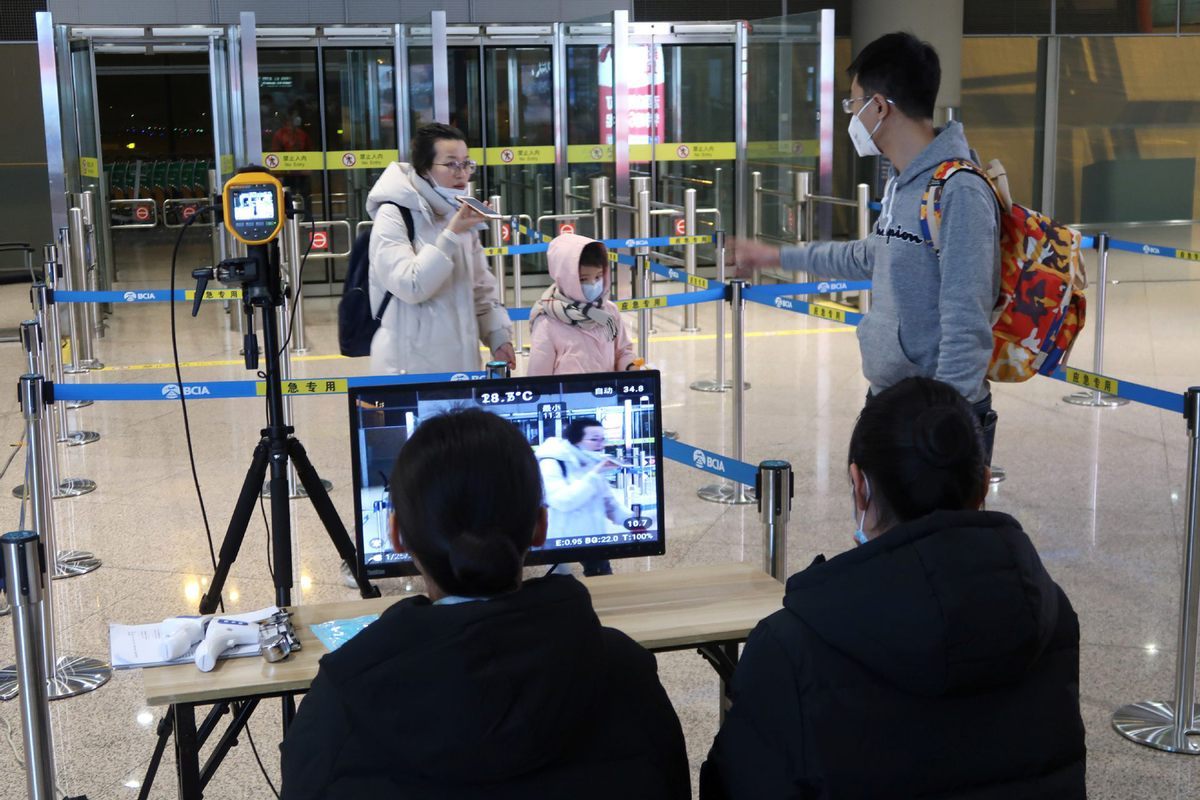
Staff members monitor thermal scanners that detect temperatures of passengers who have just landed, at the arrival terminal in Beijing Capital International Airport in Beijing, China, January 25, 2020. (Photo:Agencies)
Travelers coming to Beijing from abroad will have to bear their own medical costs if they are suspected of carrying COVID-19 or are confirmed, an official said on Saturday.
"If they have insurance then insurance company will cover the expenses," Chen Bei, deputy secretary-general of Beijing Municipal Government, said during a news conference on Saturday afternoon.
If a traveler cannot pay the medical bills, the fees will be covered with medical aid based on related laws, she said.
For those with basic medical insurance, the expenses can be covered by medical care and local government's subsidies, Chen said.
As of Friday night, there were 22 confirmed cases in the capital from overseas, according to Beijing Municipal Health Commission.
At the news conference, Pang Xinghuo, deputy director of Beijing Center for Diseases Prevention and Control, shared information on one of the imported cases, who came back from the United States on Friday.
The confirmed COVID-19 patient, surnamed Li, is a Chongqing resident and had lived in Massachusetts in the US.
She took flight CA988 from Los Angeles on Thursday morning with her husband and son, arriving in Beijing Capital International Airport on Friday.
They were sent to a designated hospital in Beijing after being checked for health conditions by customs. Li was confirmed with the COVID-19 pneumonia, while her husband and son were suspected cases, Pang said.
According to Li's accounts, she started to suffer chill on March 1 and didn't see a doctor. Afterwards, she also felt fever, as high as 39 C, and other symptoms, including cough, a running nose and nausea.
Li went to a local hospital on March 3 which gave her drug oseltamivir for her symptoms. She went to the same unnamed hospital on March 5 and March 10 when a check on her chest showed nothing unusual.
The check on March 11 showed she had pneumonia, but the hospital didn't admit Li after an evaluation on her conditions. Li said she applied for a nucleic acid test three times in the US, but was refused, according to the introduction on the brief.
A total of 59 people had close contact with her, 14 of whom are in Beijing and have been placed under quarantine, Pang said. Information on the rest had been reported to other provinces, she added.
Chinese people who are overseas and suffer related symptoms like fever should receive treatment in the places they are staying or start self-quarantine, Pang suggested.
They should avoid going out and going on a long international journey, which is not good for themselves and others, because the trips could create great risks of spreading the disease, she said.
Pang also advised residents in Beijing not to travel to countries or regions that are suffering from an outbreak of the disease. "The disease has occurred in more than 100 countries and regions," Pang said.


